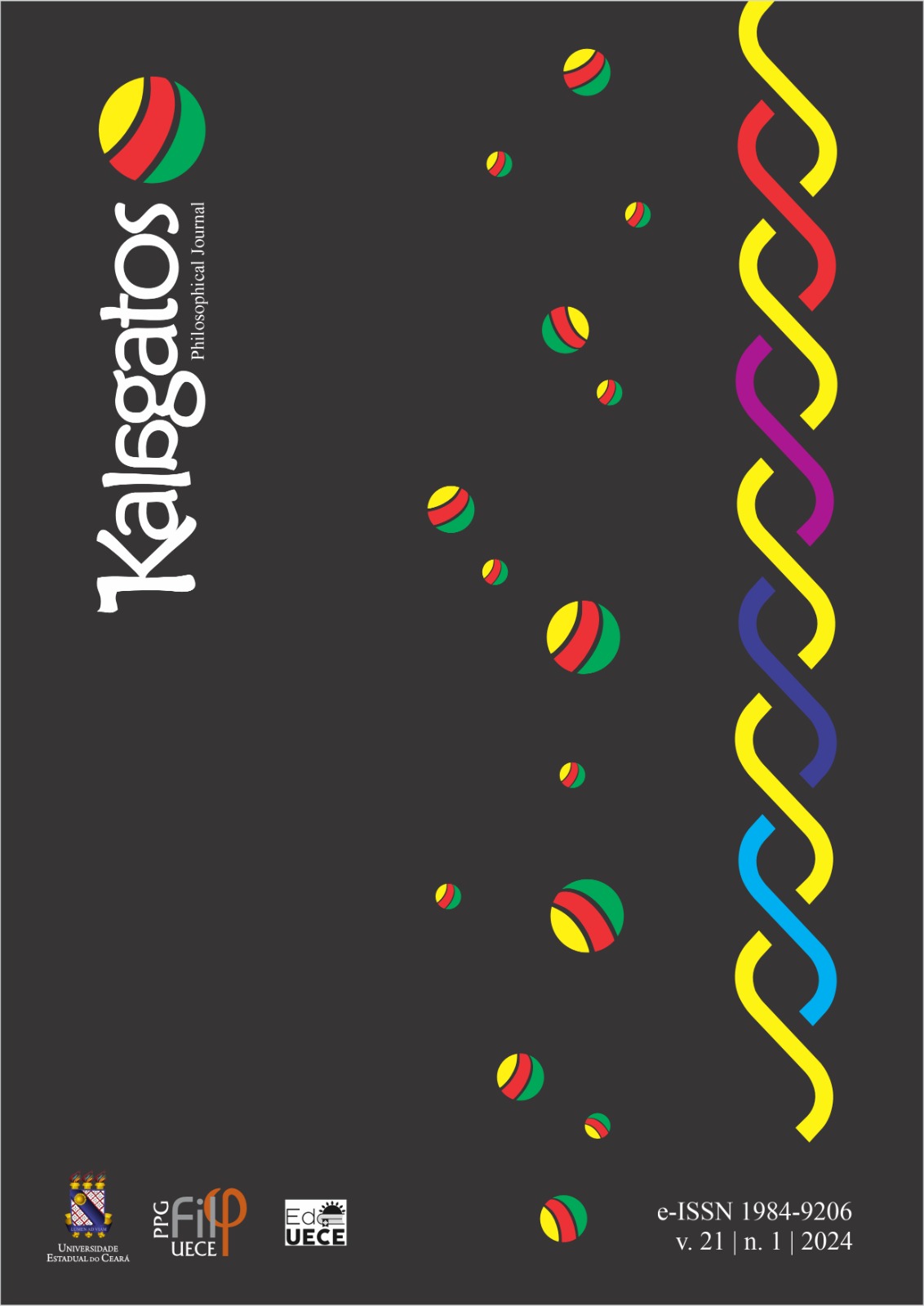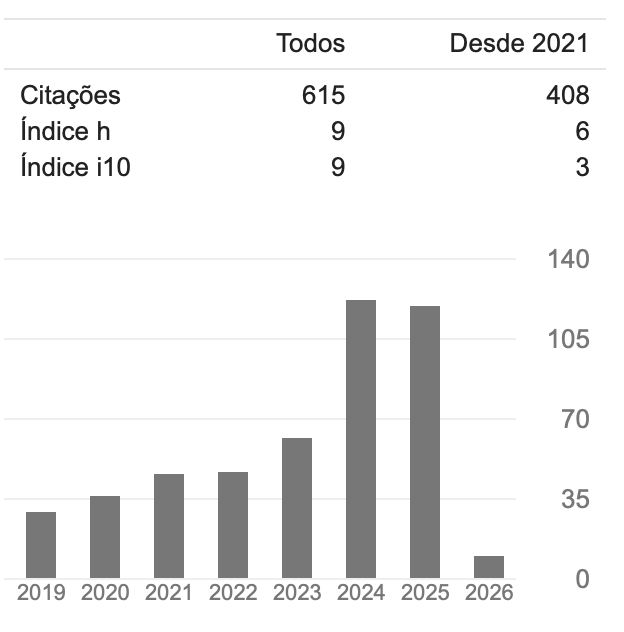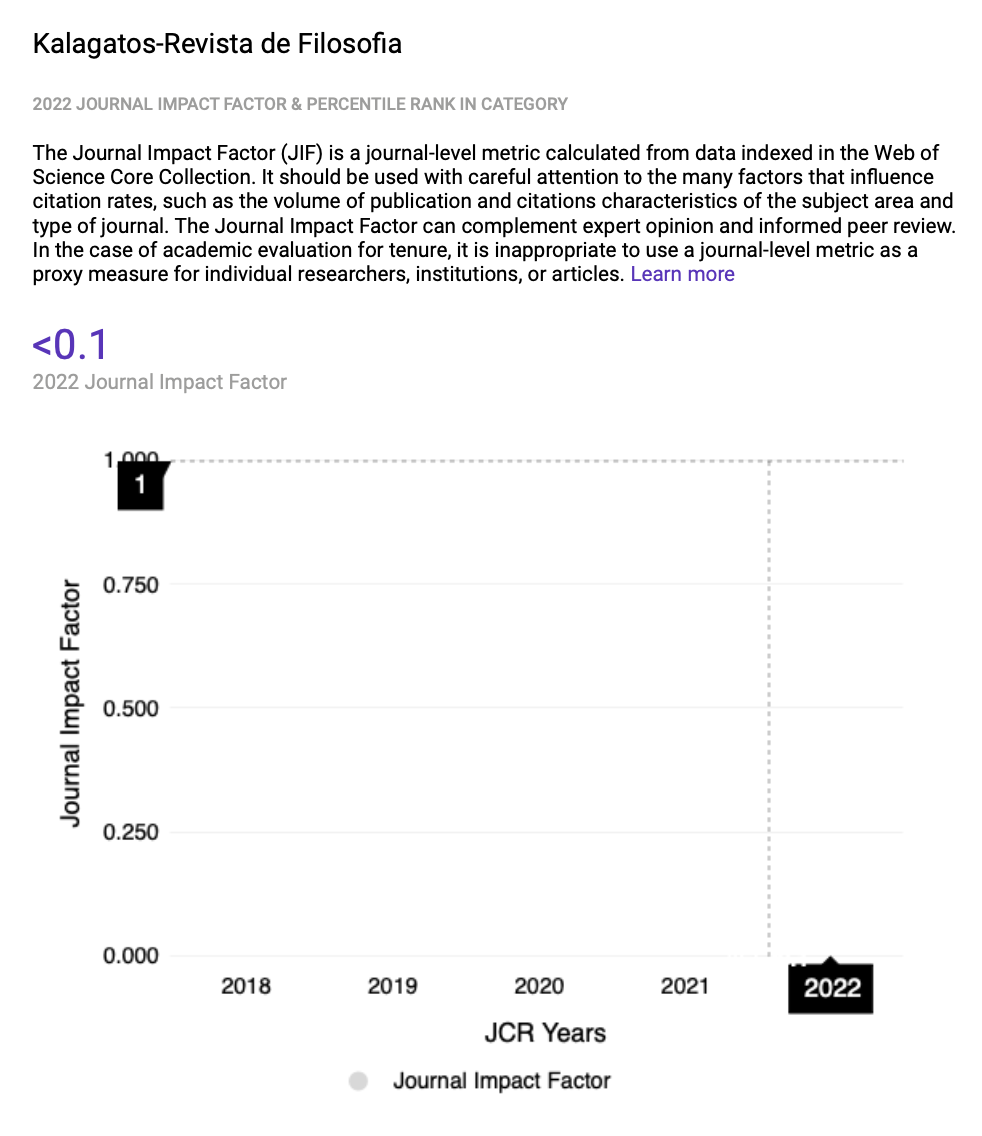A Critique of a necessitist argument by Timothy Williamson
Palavras-chave:
Necessitism, Contingentism, Barcan formula, de re modality, Existential generalizationResumo
In ‘Modal Logic as Metaphysics’, Timothy Williamson presents an argument for necessitism based on the Converse Barcan Formula (CBF): $ν ◊A g ◊$ν A. By sub-stituting ‘‘Ø$y x=y’ for ‘A’ he arrives at: $x ◊Ø$y x=y. He claims that the antecedent formulates the contingentist view that something could have not existed; but the consequent is inconsistent. Williamson’s argument collapses once the ambiguity concerning the scope of the modal operator is removed: CBF does apply to $x ◊(Ø$y x=y)’, ‘something possibly has the property of being identical to something nonexistent’; however, this is not the contingentist thesis, but is inconsistent; whereas ‘$x, ◊Ø$y: x=y’ does formulate the contingentist thesis: something is identical to something which in some possible world does not exist, but CBF does not apply. Some other misunderstandings concerning the Barcan Formula and the Principle of Existential Generalization can also be resolved after this.
Downloads
Referências
VAN ORMAN QUINE, Willard; GIBSON, Roger F. (ed). Quintessence: Basic Readings from the philosophy of W.V. Quine, Cambridge. Massachusetts: Belknap Press of Harvard University Press, 2008.
WILLIAMSON, Timothy. Modal Logic as Metaphysics. Oxford: Oxford University Press, 2013.
Downloads
Publicado
Como Citar
Edição
Seção
Licença
Copyright (c) 2024 Konrad Utz

Este trabalho está licenciado sob uma licença Creative Commons Attribution 4.0 International License.



















